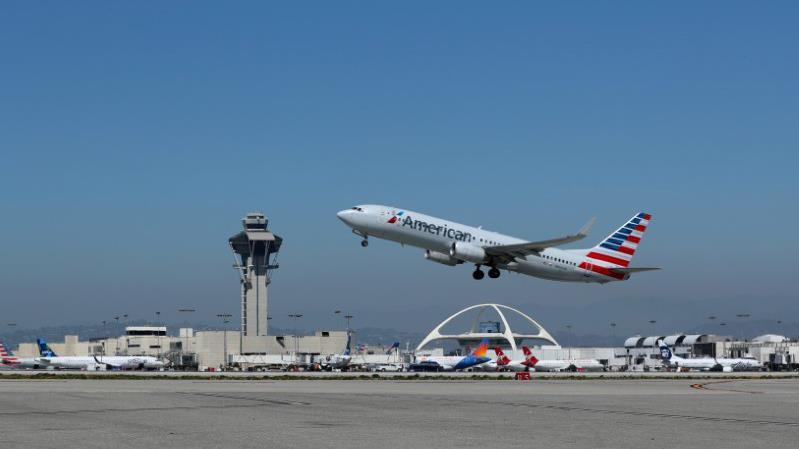Airlines cut back routes as higher fuel prices weigh
Higher fuel prices continue to be a burden on major U.S. airlines, leading some to cut back on under-performing routes.
American Airlines announced on Tuesday it would cut flights from Los Angeles to Toronto, Chicago to Shanghai and Philadelphia to Munich, and scale back the frequency of flights on certain routes, citing low profitability of the routes during the “current fuel and competitive environment.”
The news came the same day as Hawaiian Airlines said it would suspend service from Honolulu to Beijing, which it flies three times per week, though its chief executive said the airline is determined to return to China.
Jet fuel is 36.5 percent higher than it was a year ago ($87 per barrel), according to industry trade organization the International Air Transport Association. Rising fuel costs have been a thorn in the side of airlines and affected their operations, including adding and subtracting routes in addition to setting passenger fares.
“Those are routes that are thinly-profitable when oil is at $30 or $40, and become very much unprofitable when fuel is up as much as it is,” Stifel analyst Joseph DeNardi told FOX Business. “When oil goes up and margins for airlines comes down it creates some urgency to try and offset some of that margin pressure. And so I think they look a little bit harder at under-performing routes.”
Still, American maintains that it is “strongly committed” to the Asian market, despite cutting and pulling out of some routes to the region.
“These adjustments to our Asia service are necessary in this high fuel cost environment, but we remain committed to the network we’ve worked hard to build,” Vasu Raja, American Airlines’ vice president of network and schedule planning, said in a statement.
What American, the world’s largest airline in terms of revenue, is doing is not unusual, as air carriers typically reduce capacity by exiting a route entirely, adjusting the frequency of flights or changing the size of the airplane operating on a particular route.
“Primarily what you see domestically are the latter two, and a lot less of the first,” DeNardi said. “Obviously if we were to go into some sort of economic downturn you would start to see cutting of routes entirely. But I don’t think you’re seeing a ton of that at this point.”
While American is reducing its presence in Asia, rival airline United said its own service to the region continues to meet expectations.
“We are pleased with the performance of our flights between Chicago and Asia and remain firmly committed to providing our customers nonstop, daily, year-round service between our Chicago hub and Asia including Beijing, Shanghai, Hong Kong and Tokyo,” a United spokesperson told FOX Business.
Despite the reductions, American is adding nine international flights from airports including Dallas-Fort Worth, Phoenix and Philadelphia. Flights will now depart Dallas for Dublin and Munich, Philadelphia for Bologna, Italy, Berlin and two other cities. Passengers will now be able to travel from Phoenix to London as well.
“This airline doesn’t need low oil prices to be profitable,” DeNardi said. “I think what investors struggle with is how long will it take airlines to adapt and adjust their capacity and fares to higher fuel. And I think in general it takes airlines a little bit longer and it takes revenue a little bit longer to catch up to higher oil prices than the market would want. But I do think that they can adjust.”




















